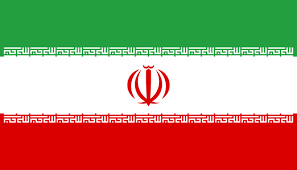Difference between revisions of "Language/Iranian-persian/Grammar/Lesson-21:-Using-infinitives"
m (Quick edit) |
m (Quick edit) |
||
| Line 1: | Line 1: | ||
<span pgnav> | |||
{| class="wikitable pg_template_nav" | |||
|[[Language/Iranian-persian/Grammar/Lesson-20:-Using-the-imperative-mood|◀️ Lesson 20: Using the imperative mood — Previous Lesson]] | |||
|[[Language/Iranian-persian/Grammar/Lesson-22:-Complex-sentences-and-conjunctions|Next Lesson — Lesson 22: Complex sentences and conjunctions ▶️]] | |||
|} | |||
</span> | |||
{{Iranian-persian-Page-Top}} | {{Iranian-persian-Page-Top}} | ||
| Line 101: | Line 108: | ||
{{Iranian-persian-Page-Bottom}} | {{Iranian-persian-Page-Bottom}} | ||
<span links></span> | <span links></span> | ||
<span pgnav> | |||
{| class="wikitable pg_template_nav" | |||
|[[Language/Iranian-persian/Grammar/Lesson-20:-Using-the-imperative-mood|◀️ Lesson 20: Using the imperative mood — Previous Lesson]] | |||
|[[Language/Iranian-persian/Grammar/Lesson-22:-Complex-sentences-and-conjunctions|Next Lesson — Lesson 22: Complex sentences and conjunctions ▶️]] | |||
|} | |||
</span> | |||
Revision as of 17:30, 29 March 2023
| ◀️ Lesson 20: Using the imperative mood — Previous Lesson | Next Lesson — Lesson 22: Complex sentences and conjunctions ▶️ |
Welcome to Unit 10 of our Complete 0 to A1 Iranian Persian Course. In this lesson, we will learn about using infinitives in Persian to express purpose, obligation, permission, and possibility. Infinitives are verb forms that are not inflected for tense, person, or number. They function as either nouns or adjectives in a sentence.
Take a moment to explore these relevant pages as you conclude this lesson: Lesson 5: Present tense conjugation of regular verbs & Come.
Infinitives as nouns
Infinitives can be used as the subject or the direct object of a sentence. In this use, they are similar to gerunds in English. Here are some examples:
| Iranian Persian | Pronunciation | English |
|---|---|---|
| دیدن | didan | Seeing |
| خوردن | khordan | Eating |
| خواندن | khɒːndæn | Reading |
- دیدن خوب است. (Didan khub ast.) Seeing is good.
- خوردن حرام است. (Khordan haram ast.) Eating is forbidden.
- خواندن کتاب علاقهمندی من است. (Khɒːndæn-e ketab elaqe-mandi-mæn ast.) Reading books is my hobby.
And here is an example with an infinitive as a direct object:
- من دوست دارم شیرینی خوردن. (Man dust daram shirini khordan.) I like to eat sweets.
Infinitives as adjectives
Infinitives can also function as adjectives in Persian. In this use, they describe a noun by indicating its purpose. Here is an example:
- کتابهای خواندنی (Ketabhaye khɒːndæni.) Books to read (i.e. readable books)
Here, "khɒːndæni" functions as an adjective that describes the purpose of the books.
Infinitives with prepositions
Infinitives can also be used with prepositions in Persian to express different meanings. Here are some common prepositions used with infinitives:
- برای (baraye): for, to
- بدون (bedun): without
- به (be): to, for
- در (dar): in, at, by
- با (bɒː): with
Here are some examples:
- من برای خواندن کتاب به کتابخانه میروم. (Man baraye khɒːndæn-e kitab be ketabkhane miravam.) I go to the library to read books.
- او بدون خوردن غذا کار میکند. (Ou bedun khordan-e ghaza kar mikonad.) He works without eating food.
- آیت الکرسی را برای حفظ قرآن میخوانم. (Ayat al-kursi ra baraye hefz-e qur'an mikhanam.) I recite Ayat al-Kursi to memorize the Quran.
Infinitives for obligation, permission, and possibility
Infinitives can also be used with modal verbs to express obligation, permission, and possibility in Persian. The modal verb comes first, followed by the infinitive. Here are some examples:
- باید بخواند. (Bayad bkhɒːnad.) Must read. (i.e. he must read)
- میتوان خورد. (Mitavan khordan.) Can eat. (i.e. he can eat)
- نمیتوان دید. (Namitavan didan.) Cannot see. (i.e. he cannot see)
- باید هر روز ورزش کرد. (Bayad har ruz varzesh kard.) Must exercise every day.
- میتوان به فرانسه سفر کرد. (Mitavan be Faranse safar kard.) Can travel to France.
- نمیتوان پول بسیار دارد. (Namitavan pool-e basiyar darad.) Cannot have a lot of money.
Note that the present tense form of the modal verb is used to express present or future obligation, permission, or possibility. The past tense form is used to express past obligation, permission, or possibility.
Conclusion
In this lesson, we learned about using infinitives in Persian to express purpose, obligation, permission, and possibility. We saw how infinitives can be used as either nouns or adjectives in a sentence, and how they can be combined with prepositions and modal verbs to convey different meanings. I hope this lesson was useful for you, and I encourage you to practice using infinitives in your own Persian sentences.
Sources
Finished this lesson? Check out these related lessons: Past Tense & 0 to A1 Course.
Other Lessons
- Give your Opinion
- Turn
- Plural
- Gender
- Lesson 3: Word order in Persian sentences
- Conditional Mood
- Sentense Structure
- Lesson 8: Direct object pronouns
- How to say goodbye
- Lesson 22: Complex sentences and conjunctions
| ◀️ Lesson 20: Using the imperative mood — Previous Lesson | Next Lesson — Lesson 22: Complex sentences and conjunctions ▶️ |

